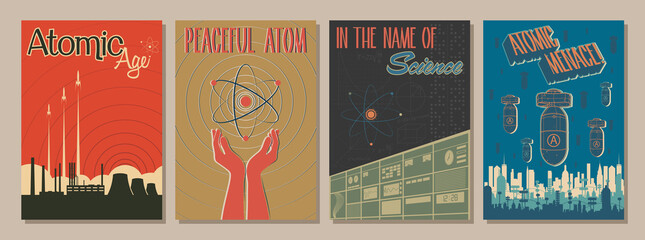They say there are two types of RPGs: large ones full of options but aren’t really about anything and need you to give them meaning and narrow ones that are really focused on being about one thing the author wants you to play so you only tend to use them once or twice. Generic, setting-agnostic RPGs are the former but even more so. It’s hard – maybe impossible – for them to be about anything without risking their chief goals of being widely applicable and infinitely flexible. It’s hard for them to even be interesting since they’re designed to be so neutral and even formulaic at times. A handy tool to do anything you want has trouble standing out – and outside of the granddaddy GURPS, has trouble selling too. Aristocracy, by Kylan Day, promises “broadsheets” that will provide setting hooks, although none have been announced yet. Also not yet visible is why the game is called Aristocracy. Maybe the plan is to be at the top of a list of RPGs, but then you’d want to be Aardvarks At Home: A Cutecore PAstoral Game of Insecure Insectivores. But I digress.
Actually, no, while I’m here, setting agnostic would mean we don’t know if we have a setting or not. It should be setting absent. But anyway.
Aristocracy works hard to stand out at least visually. For a first game, the layout is slick and attention grabbing with a good use of colour, which helps somewhat with all the page flipping needed. The art is dynamic, colourful and occasionally dazzling but again suffers from being a wide range of styles and genres like the game. To truly catch any attention, however, a universal RPG needs a strong core mechanic that’s simple but powerful. Aristocracy delivers here. Almost everything in the game is a skill roll, and skills are either untrained (d6), trained (d8) or focussed (d12). A 6 or a 7 is a success, an 8+ is a crit. You always roll five dice, so if you have no points in something it’s just 5d6 (which gives you a 60% chance of success, if you want the maths). You’ve got three main ways of messing with your dice – rerolling as many as you want, nudging a die up by one (but not off a 1, which is a botch), or upgrading a dice up a level from a botch to failure to success to a crit. You can also downgrade the other way. This allows for powers to provide three levels of dice control, but I do wonder if it’s hard to tell the difference. A reroll could at times be way more beneficial than an upshift, mathematically, and they all kind of feel the same? It would have been simpler to just give out one or bumps, say. Especially when we learn that some powers give bumps, some rerolls and some shifts, and there is no rhyme or reason which happens when. Worse, there’s no symmetry: good attribute give re-rolls, weak attributes give downshifts. Also, as clever as the dice pool system is, it’s not intuitive.Is 1/0/4 better than 0/3/2? By how much? What about 2/1/2 vs 1/4/0?
Speaking of attributes they are (sitting beside fifteen fairly standard skills) Brawn, Intelligence, Reflexes, Style, Perception are joined by Influence. This gives us a new kind of duality – we got dummy thic and twink as usual in Brawn/Reflexes, Book Smart and Street Smart in Intelligence/Perception and now we also add a Vader/Tarkin split in who got the swagger versus who pays the bills. It’s perhaps only moments of individuality like this that can set a universal RPG apart somewhat, and its a sign of the dedication behind Aristocracy that it has these touches of flair.
Another touch of flair is the mechanic where one character each session is the Lynchpin, which means the story is all about them. This is typically combined with the powers that let you alter the story or scene in your favour; by keeping this big showy things to just one person you ensure that the hacker bricking the nemesis’ laptop doesn’t happen at the same time the seductress declares they are secretly in love with them. It doesn’t play a huge part in the game as a whole but it helps communicate an important piece of information to the players (this bit is about Doug’s character) in a sly, unintrusive fashion. I wish it did do a bit more, however – it would be nice to see this have more mechanical weight to bring home what the game is about.
Skills and Attributes are also modified by Abilities, which are the Kewl Powers of the game and like the other two things, are doled out by choosing an Origin, a Species and two Careers, but before we get to those we have to learn about tracks.
Everything is tracks nowadays – what used to be clocks, and before that what we called hit points.In this case, there are bad tracks aka Danger Tracks, counting losses in health, wealth or willpower and good ones aka Progress Tracks which are like “did I find the lost tomb I’m looking for” or “are me and Mateo bros yet”. If you do an action that adds to a track, then at the end of the action you roll a d12 – roll equal or under the number of ticks on the track and you take pain equal to how many ticks you have, and then drop it back down a ways. Otherwise you keep ticking things off. This creates a very interesting dynamic where if you keep doing dangerous things it might cause you a small injury but it will absolutely assuredly cripple you if it doesn’t do that. Likewise you are generally like to pour damage onto someone until they explode…but there’s some good odds that before then, they’ll take a major injury and get reset back. That’s interesting. I guess it could get weird if you take a whole bunch of tiny near-misses and then when you get one more punch you all of a sudden collapse like a deflating wind dancer, but any loss in “realism” is balanced by being dramatically and numerically interesting.
Since everything is about successes along a track – and I mean EVERYTHING – success level always matters as a measure of volume. It’s not “oh four successes so you did quite well quite well”, because everything is a twelve-space track, so four is always a concrete number 30% better than three. And that makes all those Rerolls and Bumps and Upshifts potentially quite important. Every roll can be a negotiation with stats and math, and this makes “combat” full of choice and exciting.
I say “combat” with the inverted commas because combat is any activity that’s trying to make a Danger Track go up. or a Progress Track go down. Likewise, a Weapon is something that does the former and a Tool is something that does the latter, and here is where we get into one of the major problems with Aristocracy: jargon. Weapons are Weapons in italics for unclear reasons and an attack that uses a weapon means an actin is WEAPONISED (which I think is in all-caps because it’s a trait?). That’s fairly straight forward but everything has a tag like this and things start snowballing out of control.
For example, let’s say your group wants to hire a pilot to fly you into a volcano, but the pilot is being a jerk so your character decides they want to leave the group, go off screen and come back with a suitcase full of money and just buy the whole fricking airline. That’s either a Dangerous Combat Action which adds I guess to a Get To The Volcano Travel track, with any Danger being added to the Wealth track, unless it isn’t Dangerous at all, or maybe there isn’t a track. Alternatively, since it’s off screen, perhaps its a Downtime Action which only occurs during Downtime. In either case it might require an Extended check, because you may be doing several things. But it may not require Extended Downtime, it depends how many Downtime Actions it requires. A Downtime Action is usually just one skill roll, but what you can actually do depends on if it is a Short, Standard or Extended Downtime, and that’s a GM call. An Extended check can still happen in Standard Downtime. Now this is me trying to acquire Progress so I’m attacking my Resources Track, and I’m using a Tool to do so (I’ve got a Tool called Mommy’s Credit Card). And if you use a Tool to attack a a Progress track you do double damage, but because I’m trying to get a Big Pay Day, the Extended test acts like it has UNNATURAL ARMOUR. Okay, so let me just check what the ARMOUR ability is…(flip flip flip) and if it is UNNATURAL …okay it means all damage is reduced by 3. Is this before or after I double the damage? (flip flip flip) Not sure. Doesn’t say. And if I succeed, I get a Hoard. (flip flip flip, check index, flip flip flip, oh here it is) A Hoard is a kind of Loot that is ONE USE and can wipe out Wealth Damage or allow you to Acquire Equipment that is Rare at reduced costs. (Flip flip flip) Okay so Rare items can only normally be achieved with a Side Quest, which it turns out is just a regular Acquire Equipment roll, except it is now Extended, and can have multiple characters roll on it, so now we set up a new Progress Track towards Buying The Entire Goddamn Airline, but the Hoard “reduces the cost”, but like, how? Does the reduced cost mean it just wipes out Wealth Damage which is what it already said it did anyway? Or does it just let us roll on the track to begin with? Or does it count as a Tool? Or does it let us do it at as a non-extended task? Is the Side Quest now still Armoured, given my Hoard? Is a small fleet of planes even Rare to being with? Ask the GM. No, look at his eyes. He’s frightened. Luckily he can turn to the equipment chapter (flip flip flip) where the modern day section might indicate what makes something Rare. No dice. It doesn’t list air vehicles at all. Hang on, what if instead of getting the money first I just do a Side Quest to get the airline? Airlines aren’t listed as Rare. Let’s say one helicopter. Still no air vehicles, but we could use a Van and grant it Alternate Movement? Does that change its rarity (flip flip flip)?
It’s nice that all of this is genericised so I can reskin any item at all into a Tool that grants Progress, or even has Precision that cuts through Armour. That’s actually kind of fun, to imagine like okay, Precision removes Armour and big Pay Days are Armoured, so this person has some power that means his Side Quest heists are easy even when the Pay Days are big – so that Precise Tool might be “A Guy on the Inside”.. If I add three levels of Range to a Brutal Willpower attack, I can make anyone I can see anywhere surrender, even if they cannot see me, a power I call “Hey You Down There, Shut Up”. But if I’m reading through all the cool powers I get as a Fixer and I find out I can choose Resistance (Health) or Inspiration (Hazards) I wish it would just tell me what those things actually are. Resistance in this case means you can change any kind of damage into the brackets type, so my Fixer can turn financial damage into getting beat up. Or willpower damage into getting beat up. That’s actually a fun noir power – nobody can intimidate you, damage your finances or even run down your good name, it always just ends up being a boot to the face. Okay, so what’s Inspiration? Inspiration means I can grant allies a bump, but only during Hazards. What’s a hazard again? (Flip flip flip)
Don’t get me wrong, I think if you have intimate knowledge of this system, you can remember a lot of this. I think the designer could solve the airline problem in a second. But he doesn’t come with the book.
The other benefit of everything being generic is that you can keep some lists short. You don’t need two abilities, one for financial issues and one for physical issues: if it’s hard to wear down it’s armour, if you can get through defences,it’s Piercing.But If my raconteur gains Brutal in social situations, then all of a sudden this helpful jargon becomes vague again. Can I add it to attacks? Can I attack Travel tracks with that, even if it’s just me an my mechanic having a chat? Is it a tool or a weapon? Can it be both? And I have to remember that Brutal means more damage, instead of just reading in the stat definition – it doesn’t just say in the power “In X situations, add Y to Z”. And it’s not unified – some power ups give bumps, others rerolls, others flat bonuses. And some things on this list very specific, like Invisible, instead of some kind of Hard to Target power that slowly gets better. There’s also the ability to Portal into other dimensions which isn’t called something more abstract like Long Distance Travel (which should allow Travel tracks to…I guess cover more distance? Add Brutal?). Why is the first level of Invulnerable just being resistant to damage instead of actual invulnerability? Somethings use the jargon, some don’t, and some mix and match.
And worse: sometimes things have the wrong names, aren’t called what you think they are or aren’t explained where you think they should be. A skill will be called an occupation, characteristics will get Expert instead of Enhanced or vice versa, new skills pop up without definition, and so on.
I’m not looking for these problems. Making my first character, I decided to create a sci-fi concept which was “what if the alien from Alien was built to attack financial tracks instead of health tracks – the perfect thieving oranism.” My genetic perfection meant I always had an Accurate Tool appropriate to a task (any task? What’s a task?) but it can also be a Weapon, whereupon it counts as Brutal and Deadly. This means that if I’m using a Tool to move a thieving progress along, I have Accurate to those attacks (except it’s not an attack?) meaning I can reroll my dice, and the Tool allows me to do double “damage” to my progress. But if I attack someone’s Wealth, I do quadruple damage (because Brutal is x2, plus x2 for the Weapon) and my crits do extra damage (because of Deadly). But here is the question: when am I attacking someone’s wealth vs progressing thievery towards a goal? Or can I use it on any task related to this general area? Also, does my Poor Eyesight affect the roll, if we never said it was work that needed my eyes? I have no idea. I feel like I might be arguing with my GM a lot about both questions. I feel like my GM would be really sick of this.
So we have a system that is hard to learn, hard to remember and hard to translate into meaning, scattered across the book in pieces, and all of which are drowning in jargon you need to look up elsewhere, which is sometimes inconsistent, unspecified or unclear, and that wants to be absolutely purely abstract but also constantly relies on “the description” added by the player or the GM to know when and where and how it works..On the other hand, the intent to keep things unified is achieved. When I rolled that one of my Careers was a Summoner, I groaned because hoo boy I did not want to learn more of these rules, but the assistants rules were no longer than anybody else’s – they’re just a kind of tool. Theoretically, in this system, a spyglass and a scouting robot would work exactly the same way, and that’s fine. It was actually more complicated figuring out what a Winning Smile does – I gain Rapid Piercing Weapon to make WIllpower attacks, which means my smile ignores WIllpower Armour and that defensive actions are downshiffed against them. I can imagine what Willpower Armour might look like – the person might not like me to begin with or be on the lookout for a scam. On the other hand, they could have Willpower Absorb, or WIllpower Invulnerable, or Willpower Resistance, in which case, my Piercing is useless. Will the GM choose to give my enemies Willpower Resistance? I think he will.
And what, exactly, are defensive actions? I do not know. It is never defined. Combat is “always a contested roll” which seems to suggest that you are both attacking at once. Or both defending. And how do you defend against a smile? What Skill do I roll for that?
That was fifteen hundred words of negativity, which is a lot. But I want to be clear why I’m struggling with the game, because it has a lot of power and passion behind it, and a lot of good writing. But every time I find something I like, I find the good Lord taketh away the next moment. The three kinds of Templates you snap together to make a character – Origin, Species and Careers – are full of really evocative entries that you just don’t see elsewhere. Careers include things like Merchant Princes, World Breakers, Sorcerers and Shadows…but then things get confused when we also have Chirugeon sitting next to Hacker on the same list. Yes, it says not to use Hackers in medieval games, but that information isn’t on the table I chose it from. Species includes “Protagonist” alongside obvious cyberpunk things like Drone, Rebuild, Geneforged and Uplift – if we’re all playing modern day cops, do we all just pick Protagonist? Origin includes Socialite but no clear reason why it’s different to Fixer, or how Criminal is different to Scoundrel. Yes you can grow up On the Streets or Rich and still end up a Scoundrel, but who is born a Pilot? Why is that an Origin?
Combat also has some great stuff. Whenever you add to someone’s Damage track you roll to confirm that advance. If someone has taken three points of damage out of twelve, you need to roll a 1 2 3 to turn that into a minor effect. If someone has taken 10 points of damage you’ll convert that to a critical effect 84% of the time. So as mentioned you will rarely deal minor attacks and almost always convert to bone crunching owies. And it’s great that chapter four is full of whole bunches of options for these kinds of effects for players to choose from. Except it probably is going to slow down play to pass the book around every time a hit is confirmed. And some of them have tags that aren’t explained, and some require GM calls (I can do a coup de gras only if the target is prone but no effect causes prone as written. How do I make someone prone? Can I just say they are prone? Is it harder to hit them if I want to do that? How would I or the GM make this rule up on the fly?).
Some of the tracks are great, especially when you realize there are lots of powers that you can activate by throwing damage on those. Got the Enemeis track? Then you can get Bumps or rerolls by leaving a trail of breadcrumbs or just pissing people off. But it’s sort of misnamed because Health and Wealth and Willpower are positive things, and I guess this is a Lack of Enemies that is being whittled away? Maybe it should be called People’s Tolerance for Your Bullshit. Secrets is another great one. I desperately need to make a character who gets buckets of powerups by running their mouth off when they shouldn’t, but has some amazing healing power to stop it coming back to hurt them (Restoration (Secrets)).. And I love that this can happen just by rolling 1s on your die rolls, when doing a Dangerous action – as in you don’t know when you’ll slip up and make a mistake. Now, which actions are Dangerous? I can’t remember. (Flip flip flip)
I think it’s exciting to have all these wonderful narrative realms to attack, damage and confirm wounds upon. It does mean you have to speak of everything in the abstract instead of the specific but it allows you to model anything you want with the same rules. And it’s exciting to have a system that has all that flexibility about what might be an attack, damage and health but comes complete with crunchy modifiers like Brutal, Accurate and Deadly. I do think games like GYRO and Cortex and Fate do some of the same kind of things with more elegance and approachability and are much easier to read – but I don’t think I’ve seen anything do it with this much interesting mechanical structure. It reminds me, more than anything, of DnD 4e, where everything could be reskinned as an attack somehow. But it doesn’t actually have the satisfaction of interesting tactical combat.
But as I say, making this interesting abstract shopping list of powers apply to everything is conceptually fun and open to great builds. Having defined powers like Burst, Rapid, and Piercing means I can make every piece of equipment and every super power feel different in different ways – and I can apply that to every thing, every where. It’s like being a gunbunny in Shadowrun except the mods work for your charisma too, or your rugged individualism or your ability to walk a long way in the rainI can give my evil banker Burst financial attacks because he can attack lots of people at once. I can give an incisive reporter Piercing attacks against Secrets. I can protect myself against the wiles of saucy enemy agents by strapping on a device that gives me Armour and Defensive against romance attacks, while my nemesis, Captain Dick Longfellow, has supernaturally enhanced Style, and a Natural Weapon that is Deadly against Morality trackers. And now, finally, I can remember what all of that means – but I will forget, and have to look the damn things up again. Or get into an argument with the GM about how if I fire enough arrows it counts as a Burst not a Rapid attack, and all the king’s guards were absolutely close enough for it to count because Burst doesn’t define HOW near to each other enemies have to be.
Some of this is because of the nature of this book: a universal roleplaying game is not really a game at all, but a toolkit from which to construct an RPG, from which one then constructs a game. This is a resource of lots of rules to use to construct those RPGs. I think what would help the game would be a narrower focus. The design could pick exactly the right list of Origins, Species, Careers, plus tracks and Abilities that work for that setting, and simultarneously strip away much of the generalities, ambiguities and diversions. It would figure out exactly which tracks matter and how much crunch those tracks need and save space by cutting out every possible modulation and variation, and then maybe allowing them not to constantly be referred to with jargon. If it finally picked a cyberpunk setting, we could rob people for money instead of wealth units. And maybe see some more pregenerated characters so the skill system makes sense, or making our own can be smoother. These are in the works, so we will see where the game is in six months.
Until such products come along, I cannot recommend Aristocracy. It is certainly not more than the sum of its parts. However, it is a collection of some clever parts. The dice system is interesting, allowing lots of fiddling without ever rolling more than five dice. The idea of tempering every possible confrontation through the same mechanics and building modifying tags that work for any kind of battlefield is clever, and shows a confident design hand. The use of language in delineating the templates is deft and vivacious. At times, the reach has been audacious, even if some of the execution roughhewn. So while I don’t like the game as it is, I find myself hungry for the next thing to come. That’s worth something.
How much you like this game depends on how much work you are prepared to do getting across all that style, terminology and complexity, and then tailoring it to the setting and game you want to play, and the game is not super helpful at guiding you through either of those steps. But maybe you like things a little rough. That’s between you and Captain Longfellow.







